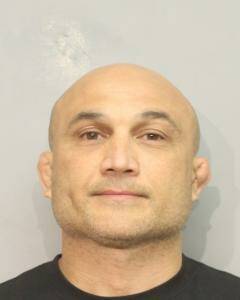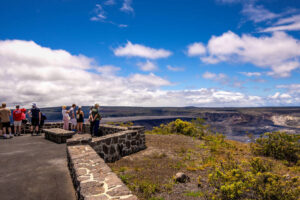The inauguration ceremony of Hawaii Island’s new mayor, Kimo Alameda, and the new County Council resonated deeply with those who call the Big Island home and those who cherish the opportunity to enable a truly resilient Hawaii. Mayor Alameda spoke of “geographic equity” and honored the “sacred grounds” of Moku o Keawe, where the ceremony was held. He emphasized the importance of kakou – the spirit of inclusivity and community – and how this can help the Big Island fix its most complex challenges.
Mayor Alameda’s priorities include addressing a long list of opportunities to achieve a resilient and sustainable Hawaii — a Hawaii where our people can thrive today and long into the future. Some of the mayor’s priorities include housing, health and safety, transportation, economic resilience, environment and energy.
A key factor in many of the priority areas is energy resilience.
On the Big Island, about half of the island’s electricity comes from imported oil. We also use over 7 million gallons of gas and diesel each month! This dependence places our economy and well-being at risk of being disrupted by geopolitical conflict, natural disasters, and other supply chain-disrupting events. It contributes to high electricity and fuel prices, which ripple through our economy and pocketbooks. It also represents an unnecessary outflow of money. Ultimately, Hawaii’s high cost of living and economic hardships can be directly tied to our dependence on these imports.
We can change this.
We have access to abundant energy sources — the sun, wind, water, biomass and geothermal — that can reduce our dependence on imports. We’ve made significant progress in deploying solar photovoltaics, batteries, and wind turbines, but we’ve yet to realize the full potential of other sources, especially geothermal.
Hawaii Island’s Puna Geothermal Venture, currently the only geothermal plant in our state, contributes roughly 15% of the island’s electricity. Other renewables account for about 37% combined. As we move to electrify our buildings, industries and transportation, the electricity demand will increase dramatically, so we must aggressively develop our ability to create power that is reliable and always available.
Geothermal energy offers access to limitless firm power, 24 hours daily, every day of the year, with a physical footprint that is a fraction of what a solar or wind farm would occupy. Once established, a geothermal plant can operate for 50 years or more. Thus, we need it to play a larger role in our energy future.
Geothermal can help Hawaii transition to a resilient, equitable and sustainable economy. It can lower electricity costs for households and local businesses, accelerate the electrification of our transportation system, create new job opportunities and attract new industries.
To achieve maximum community benefit, geothermal energy must be developed with malama. I agree with county Prosecutor Kelden Waltjen that we must “promote positive changes that will encourage and enable our keiki to survive and thrive right here in our mainland — Hawaii.”
As Mayor Alameda and Council Chair Holeka Inaba reminded us, we must honor our state motto, coined by King Kamehameha III: “ua mau ke ea o ka aina i ka pono.” While often translated as “the life of the land is perpetuated in righteousness,” that line is also a call to faithfulness in how each of us carries out our roles, in whatever capacity we serve, to care for the people of these islands. All efforts to develop geothermal energy (and any vital infrastructure) must be done just and equitably and with deep respect for our environment, people and culture.
In these trying times, we need leaders like our newly elected mayor and his team, along with Native Hawaiian leaders, nonprofits and businesses with the kuleana to address our opportunities with urgency, respect and care.
As a resident of Hawaii Island with deep ties to this place we call home, the public commitment expressed at the inauguration ceremony gives me hope.
Noel Morin, a Hilo resident, is the board chair for Sustainable Energy Hawaii, a nonprofit organization that advocates for affordable and sustainable energy.





